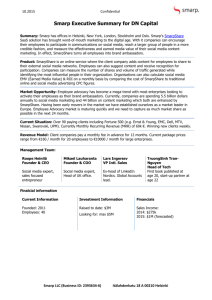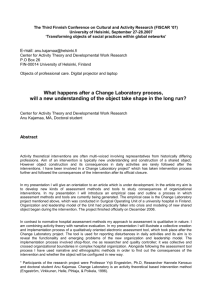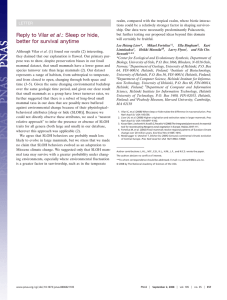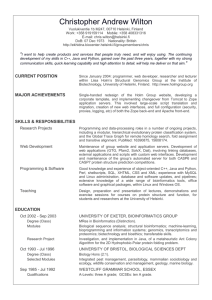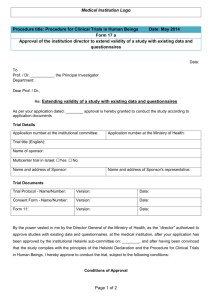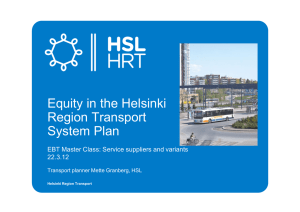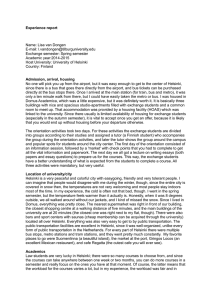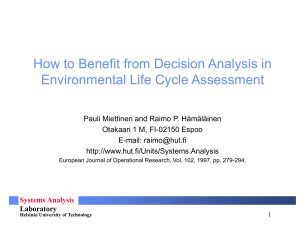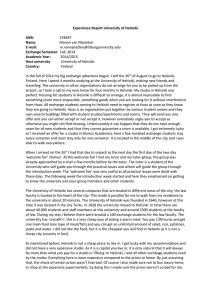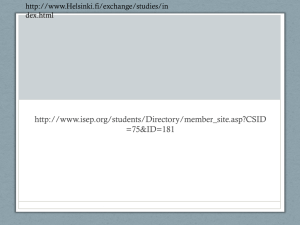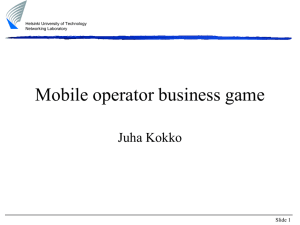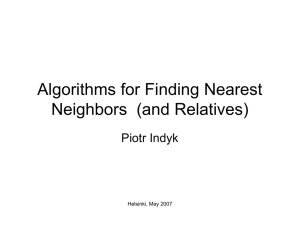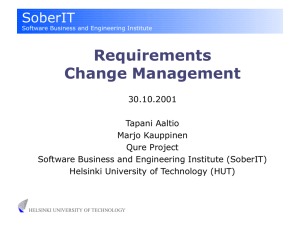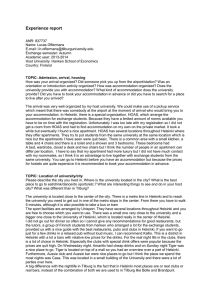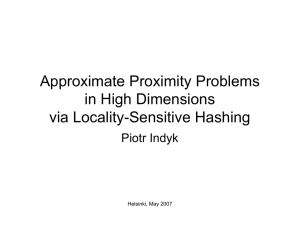Slide - IAOS 2014 Conference
advertisement
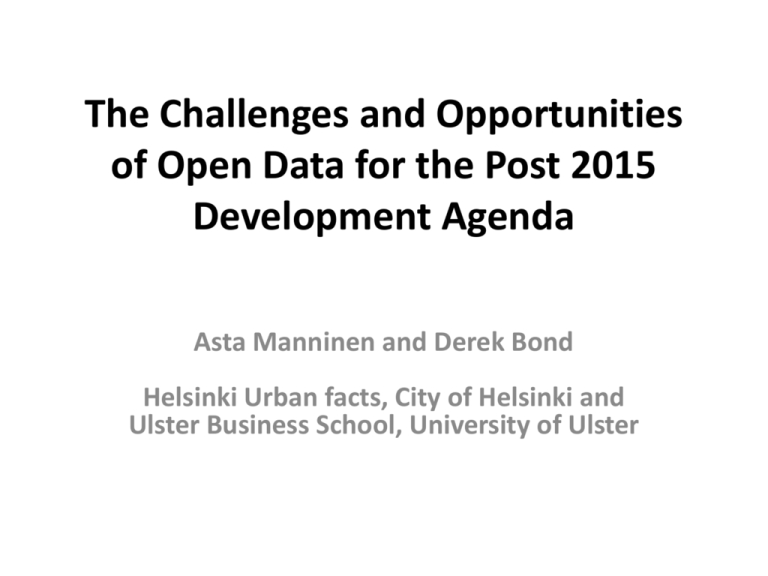
The Challenges and Opportunities of Open Data for the Post 2015 Development Agenda Asta Manninen and Derek Bond Helsinki Urban facts, City of Helsinki and Ulster Business School, University of Ulster Why is sustainable urban development topical now? “The world is undergoing the largest wave of urban growth in history. In 2008, for the first time in history, more than half of the world’s population will be living in towns and cities. By 2030 this number will swell to almost 5 billion, with urban growth concentrated in Africa and Asia” (http://www.unfpa.org/pds/urbanization.htm). In Europe • ,85% of GDP is generated in cities and about three quarters of the EU population live in cities. • We can also add that a remarkable share of CO2 is emitted in cities. Central Role of Urban Issues “Urban issues are increasingly prominent on national policy agendas. Cities and metropolitan areas are major contributors to national economies and play a key role as nodes in global markets.” (http://www.oecd.org/gov/regionalpolicy/urbandevelopment.htm ). Role of Indicators • Since the 1992 Rio summit numerous local communities have put efforts in larger or smaller local sustainable development projects linked to Local Agenda 21. Many of these projects have also collected indicator sets in order to measure the development towards sustainability in their area. European Urban Matrix demand surveys outcomes: More Knowledge needed on: • Integrated approaches to sustainable urban development • Sustainability aspects in public-private partnerships • Cooperation with stakeholders and citizen participation • Climate change • Integrated transport systems • Social cohesion & demographic change • Urban regeneration & compact cities • Linking competitiveness and economic development to sustainable development Cities and urban regions play a major role in future sustainable development • New approaches are needed for a new and more sustainable future. – Important components and ingredients of the new approach are amongst others: • citizen engagement and • an integrated way of tackling the economic, environmental, social, cultural and demographic dimensions together. • In addition attention is to be paid to a multi stakeholder involvement in introducing and implementing urban policy. What role does open data play in shaping the next urban development agenda? Open Data • “Open data is data that can be freely used, reused and redistributed by anyone - subject only, at most, to the requirement to attribute and share alike” (http://opendatahandbook.org/en/what-is-opendata/). • A closer look at one open city data example will demonstrate the power of open data in shaping the next urban development agenda Helsinki Regional Infoshare • The initiative of open data in the Helsinki region was created in 2009 after the four cities of the region (Helsinki, Espoo, Vantaa and Kauniainen) agreed on the vision for regional data 2020 • The four cities setting up the Helsinki Region Infoshare adopted an open data policy in spring 2010. Summary of experience • Open data supports the implementation of the City Strategy and the urban development in many ways. • The experiences of the first two years working with open data are presented in the publication “Helsinki Region Infoshare: 2 years of open public data” available at http://www.hri.fi/en/news/helsinki-regioninfoshare-2-years-of-open-public-datapublication/ In an open city democracy and participation become stronger. • Open Ahjo, is the open application programming interface (http://dev.hel.fi/apis/openahjo) to the digital decision-making system of the City of Helsinki. • It provides all the public decisions and related documents and data as open data • In other word, open data empowers and enables citizens engagement. • Open data also enables the city and its stakeholders to utilise the evolving digital environment and to accelerate the delivery of digital services on web and mobile platforms. Open data and open statistics bring new actors on the scene. • These new actors are knowledgeable and skillful people in data mining, data analytics, data journalism, developing APIs and applications. • They are enthusiastic and energetic people used to agile co-creation and coproduction. • Many of them are entrepreneurial aiming at new businesses or improving their already existing businesses. • New businesses create new jobs which are much requested in the present time of economic crises and big structural change. Impacts of open data • • • • Empowerment Buy in More transparency Greater Inward Investment
